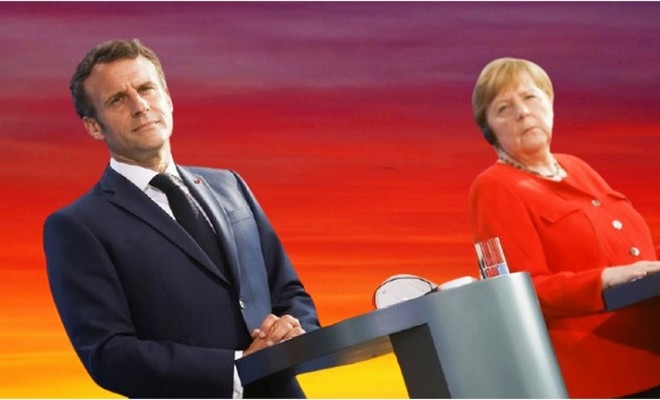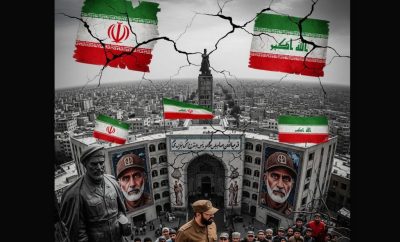
European policy toward Russia begins in the East
The Franco-German proposal for a European Union (EU) summit with Russia—doomed from the start and rejected on June 25—sheds light on deep dissension within the European Council on relations with Russia and the work that must still be done to develop foreign policy in Brussels.
At least three issues hobbled the idea championed by French President Emmanuel Macron and German Chancellor Angela Merkel: a lack of consultation, no articulation of expected results, and a dose of suspicion.
Central and Eastern European members of the EU questioned the motivations of the two nations and Austria, whose chancellor supported the proposal, given perceptions of German stubbornness in completing the Nord Stream 2 gas pipeline and appeasement of Moscow; France’s project for a “security and trust architecture” with the Russian regime (though this project is probably now brain dead, as the French minister of the armed forces said a year ago that dialogue with the Kremlin had not produced results); and Austrian banks’ exemptions from sanctions against Russia.
The timing of the proposal didn’t help. Still lingering is the sting of the disastrous February visit of the EU’s top diplomat to Moscow. EU and NATO members have pointed to a certain cognitive dissonance: on the one hand, the firm NATO summit communiqué issued on June 14 and the European Commission’s document, endorsed by the Council, defining the strategy toward Moscow (“push back, constrain, and engage”), and on the other hand, the conciliatory tone of the German and French leaders after the EU summit. Separate press conferences by Merkel and Macron, in which each affirmed an intention to continue discussions with the Russian president, did not help reassure those countries that are most reluctant to “engage” with Vladimir Putin’s Russia. In the EU document, moreover, the word “engage” itself remains ambiguous—a term that seems either purely stylistic or like license for the EU to salami-slice the various issues at play in its relations with Putin’s regime.
Συνέχεια ανάγνωσης εδώ
Πηγή: atlanticcouncil.org




